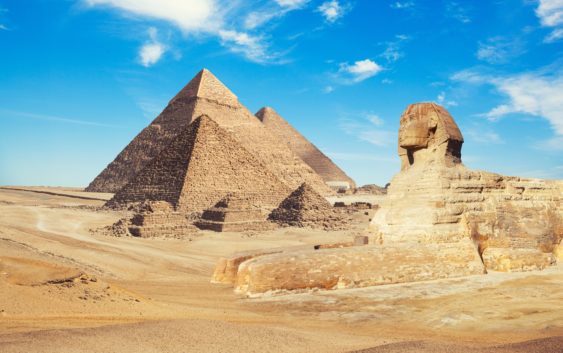- WORLD BANK KICK-OFF INSPECTION OF USMID PROGRAM IN UGANDA
- ALGERIA MINISTER RECIEVED HARBOR ENERGY CEO OVER ENERGY PARTNERSHIP
- CAN INNOVATION OUTRUN DROUGTH IN MOROCCO ONGOING WATER MANAGEMENT CRISIS
- SCZONE SIGNED DEAL WITH CHINESE INVESTORS FOR IRON PRODUCTS PROJECTS IN EGYPT
- WESTPROP HOLDING LIMITED SET TO EMBARKED ON PIPELINE PROJECT IN ZIMBABWE
EGYPT’S ECONOMIC POTENTIALS

With over 100 million inhabitants, Egypt is the most populous country in North Africa, popular referred to as Maghreb region and part of the Arab World. Egypt is the third most populous country after Nigeria and Ethiopia in Africa. About half of Egypt’s residents live in urban areas, with most spread across the densely populated centers of greater Cairo, Alexandria and other major cities along the Nile Delta.
The economy has been transforming from one based upon agriculture to an economy with more emphasis on services sector, for example its fast-growing tourism and hospitality, and to some extent manufacturing. It has experienced a fall in Foreign Direct Investment [FDI] to the country.
Egypt’s economy mainly relies on sources of income: tourism, remittances from Egyptians working abroad and revenues from the Suez Canal. Egypt has received United States foreign aid [an average of $2.2 billion per year], and is the third-largest recipient of such funds from the United States.
Remittances, money earned by Egyptians [estimated 2.7 million] living abroad and sent home, reached a record $21 billion in 2012, according to the World Bank. Tourism is one of the most important sectors in Egypt’s economy. More than 15.8 million tourists [2018] visited Egypt, providing revenues of nearly $11 billion. The tourism sector employs about 12% of Egypt’s workforce.
With one of the largest and most diversified economies in the Middle East, which is projected to become one of the largest in the world in the 21st century, Egypt has the third largest economy in Africa. Egypt is a founding member of the United Nations, the Non-Aligned Movement, the Arab League, the Organization of Islamic Cooperation and the African Union.
SOURCE: TheNewDawnLiberia

